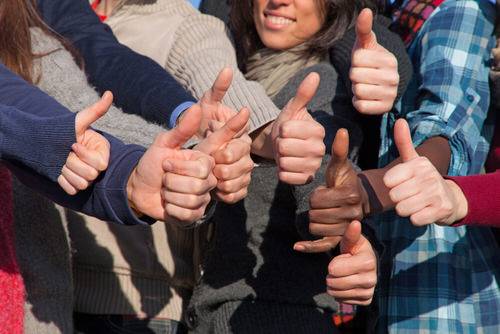
Editor’s Note: This is part 1 of a 3-part series covering Len Kendall’s abstinence from the “Like” button throughout April.

Amidst the Boston Marathon tragedy, Facebook on Monday was a fascinating environment to observe. There was so much to NOT “like” that day—gruesome pictures shortly followed by inspirational images and quotes. Either way, merely hitting a button seemed inadequate to me.
Good thing I’d already decided I wasn’t going to “like” anything this month.
I ended up just donating money to the Red Cross Blood Collection service and then staying fairly silent.
The tragedy merely confirmed my decision to change a behavior that I, like many, have adopted into my daily activities. I’m not going to “like” anything on the internet. Anywhere. Not on Facebook, and not on websites featuring a similar “like” button.
Let me back up.
Not so long ago, there was a much wider gap between the various methods for acknowledging online content. At one end, you had the option of reading something and then doing absolutely nothing. On the other, you had things like leaving a comment, emailing the post to a friend, or writing a blog post in response to another you read elsewhere.
But in early 2009, an extremely low-impact feature came to exist: the “like.” It was a brilliant addition, and it quickly has become a staple of daily Internet activity across the world, websites, and devices. It wasn’t the first or last of its kind, but the “like” did ultimately become something that now gets billions of clicks. Facebook alone generates somewhere around 3 billion “likes” a day.
This weekend I stopped to evaluate my own usage of this button and came to the following unscientific but plausible conclusions:
- Only 5% of the time when I “like” something on the Web am I doing so to share it explicitly with my network. I do believe, though, that clicking “like” within Facebook helps drive what content becomes popular for my friends and myself. Sometimes it’s a big life moment like a wedding, other times it’s an Amazon review for a Banana Slicer.
- Hitting the “like” button on Facebook itself has stopped me from writing comments (and articulating actual thoughts) in response to items others are posting. I feel like I’ve already done enough by clicking a button.
- I’ve hit the “like” button thousands of times out of obligation, for worry that I might hurt someone’s feelings or make them feel ignored.
So reviewing all the points above, I wondered about the following question: Who exactly is benefitting the most from me hitting this button? That’s the question I’m trying to solve for with this experiment.
In the meantime, here are a few observations from my first 72 hours of not hitting the “like” button—an action that I have taken everyday for probably the last two years.
1) I already slipped up once and had to go “unlike” something I “liked.” It bothered me how mechanical the act of reading Facebook posts and “liking” had become.
2) I started leaving 10x more comments on posts, and have spent more time articulating my responses to longer discussion threads.
3) While my time spent on Facebook has continued to decrease, taking away the act of “liking” has further reduced my time on the social network and increased it on Twitter, Reddit, and get this…email.
4) I’ve continued to check Facebook immediately when a notification flag has popped up to see who has liked my posts. I suspect this won’t change throughout the experiment.
I may be overanalyzing here, but my hope is that it will spur others to reflect on their own low-impact, low-investment habits online. I’ll be providing a report in the next week or so with further observations. For now, I encourage you to either join me in this experiment, leave a comment below, or … do absolutely nothing.
Just don’t click that button.
Photo courtesy of Shutterstock
















